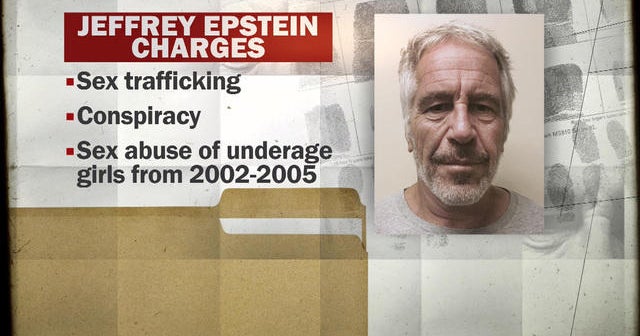France Proposes Joint European Nuclear Deterrence

Table of Contents
France's Rationale Behind the Proposal for Joint European Nuclear Deterrence
France's proposal for a joint European nuclear deterrence framework stems from several key motivations, all aiming to strengthen Europe's position on the world stage and enhance its security.
Strengthening European Strategic Autonomy
A primary driver for France's proposal is the desire to reduce its reliance on the US nuclear umbrella and cultivate Europe's independent ability to deter threats. This pursuit of strategic autonomy is a cornerstone of France's foreign policy.
- Increased credibility of European security commitments: A joint European nuclear deterrent would significantly enhance the credibility of European security guarantees to its member states and partners.
- Reduced vulnerability to external pressure: Greater strategic autonomy reduces Europe's susceptibility to coercion or undue influence from external actors.
- Enhanced decision-making autonomy in matters of defense and security: A shared nuclear deterrent framework allows Europe to make independent decisions regarding its security posture, without being fully reliant on external actors.
Addressing Emerging Threats
The proposal directly addresses the growing complexity of threats to European security, including those from revisionist powers like Russia and the potential rise of other adversaries.
- Deterrence against nuclear and conventional aggression: A joint nuclear deterrent provides a credible threat to potential aggressors, deterring both nuclear and conventional attacks.
- Enhanced collective security against asymmetric threats: The framework could strengthen collective security against a wider range of threats, including cyberattacks, terrorism, and hybrid warfare.
- Stronger response capabilities to regional conflicts: A more robust European security architecture, underpinned by a joint nuclear deterrent, could improve the response capabilities to regional conflicts and crises.
Shared Responsibility and Burden Sharing
A joint approach to nuclear deterrence promotes a more equitable distribution of costs and responsibilities among participating nations.
- More equitable distribution of resources amongst participating nations: Sharing the financial burden of maintaining a nuclear arsenal reduces the strain on individual states.
- Fostering greater cooperation and trust among European allies: Collaboration on such a sensitive issue would inevitably strengthen cooperation and build trust amongst European allies.
- Reducing individual financial burdens on nuclear-armed states: Pooling resources lowers the individual financial burden for nuclear-armed states, making nuclear deterrence more sustainable.
Potential Challenges and Obstacles to Implementing Joint European Nuclear Deterrence
Despite its potential benefits, several significant challenges and obstacles could hinder the implementation of a joint European nuclear deterrence strategy.
Nuclear Non-Proliferation Concerns
Expanding access to or control over nuclear weapons raises considerable non-proliferation concerns.
- Potential for nuclear proliferation among non-nuclear states: The risk of nuclear weapons falling into the wrong hands is a major concern.
- Challenges in maintaining strict control over nuclear arsenals: Ensuring the secure management and control of a larger, shared nuclear arsenal presents significant logistical and security challenges.
- Increased risk of accidental or unauthorized nuclear use: A more complex system increases the potential for accidental or unauthorized use of nuclear weapons.
NATO's Role and Transatlantic Relations
The proposal's impact on NATO's collective defense and transatlantic relations demands careful consideration.
- Potential for duplication or overlap with existing NATO structures: Avoiding redundancy and ensuring effective coordination with NATO's existing defense mechanisms is crucial.
- Maintaining close cooperation with the US, a key nuclear ally: Preserving strong ties with the US, a vital nuclear ally, is essential for the success of any European nuclear initiative.
- Avoiding friction or competition within the transatlantic security framework: The initiative must be carefully managed to prevent damaging the transatlantic security partnership.
Internal Political Divisions Within Europe
Reaching a consensus among EU member states on such a sensitive issue is a significant political hurdle.
- Varying levels of commitment to nuclear deterrence amongst European nations: Not all EU members share the same views on the necessity or desirability of nuclear deterrence.
- Diverging opinions on the role and scope of European security policies: Differing national security doctrines and priorities can create obstacles to agreement.
- Navigating differing national security interests and priorities: Balancing the various national interests and priorities within a joint framework is crucial for its success.
Potential Implications of Joint European Nuclear Deterrence for European Security
The implementation of a joint European nuclear deterrent would have far-reaching implications for European security and the wider geopolitical landscape.
Enhanced Deterrence
A unified nuclear deterrent could offer significantly stronger deterrence against potential aggressors, reducing the likelihood of attack.
Increased European Strategic Autonomy
A joint framework would reduce Europe's dependence on external security guarantees, enabling it to act more independently in defense matters.
New Dynamics in Transatlantic Relations
The initiative could reshape the balance of power within NATO and potentially alter the relationship between Europe and the US, necessitating careful diplomatic management.
Conclusion
France's proposal for joint European nuclear deterrence represents a potentially transformative shift in European security architecture. While offering the promise of enhanced strategic autonomy and improved deterrence, it presents significant challenges. Addressing non-proliferation concerns, navigating transatlantic relations, and overcoming internal European divisions are crucial for the success of this ambitious undertaking. Further dialogue, collaboration, and a comprehensive risk assessment are vital to determining the feasibility and ultimate implications of this vision. The future of European security depends on a thorough evaluation of the potential benefits and drawbacks of joint European nuclear deterrence and a carefully considered path forward.

Featured Posts
-
 Understanding The Controversy Voting On The Release Of Jeffrey Epstein Documents
May 10, 2025
Understanding The Controversy Voting On The Release Of Jeffrey Epstein Documents
May 10, 2025 -
 Planning Your Summer Trip Dont Forget Real Id
May 10, 2025
Planning Your Summer Trip Dont Forget Real Id
May 10, 2025 -
 Nyt Spelling Bee April 1 2025 Complete Guide To Todays Puzzle
May 10, 2025
Nyt Spelling Bee April 1 2025 Complete Guide To Todays Puzzle
May 10, 2025 -
 Finding The Right Location A Guide To The Countrys Top Business Hotspots
May 10, 2025
Finding The Right Location A Guide To The Countrys Top Business Hotspots
May 10, 2025 -
 Is This Investment Really A Safe Bet A Practical Guide
May 10, 2025
Is This Investment Really A Safe Bet A Practical Guide
May 10, 2025
